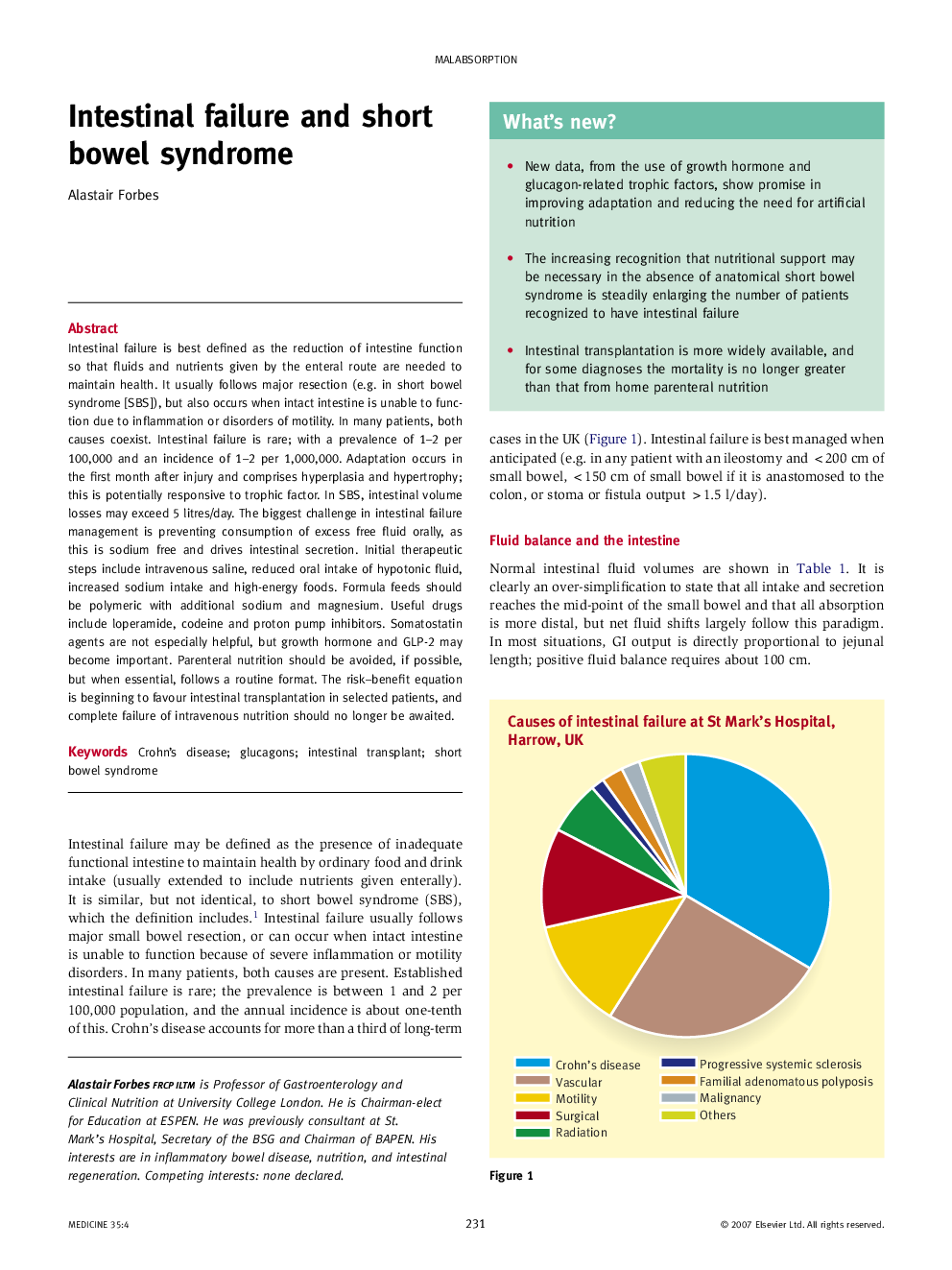| کد مقاله | کد نشریه | سال انتشار | مقاله انگلیسی | نسخه تمام متن |
|---|---|---|---|---|
| 3804543 | 1245076 | 2007 | 5 صفحه PDF | دانلود رایگان |

Intestinal failure is best defined as the reduction of intestine function so that fluids and nutrients given by the enteral route are needed to maintain health. It usually follows major resection (e.g. in short bowel syndrome [SBS] ), but also occurs when intact intestine is unable to function due to inflammation or disorders of motility. In many patients, both causes coexist. Intestinal failure is rare; with a prevalence of 1–2 per 100,000 and an incidence of 1–2 per 1,000,000. Adaptation occurs in the first month after injury and comprises hyperplasia and hypertrophy; this is potentially responsive to trophic factor. In SBS, intestinal volume losses may exceed 5 litres/day. The biggest challenge in intestinal failure management is preventing consumption of excess free fluid orally, as this is sodium free and drives intestinal secretion. Initial therapeutic steps include intravenous saline, reduced oral intake of hypotonic fluid, increased sodium intake and high-energy foods. Formula feeds should be polymeric with additional sodium and magnesium. Useful drugs include loperamide, codeine and proton pump inhibitors. Somatostatin agents are not especially helpful, but growth hormone and GLP-2 may become important. Parenteral nutrition should be avoided, if possible, but when essential, follows a routine format. The risk–benefit equation is beginning to favour intestinal transplantation in selected patients, and complete failure of intravenous nutrition should no longer be awaited.
Journal: Medicine - Volume 35, Issue 4, April 2007, Pages 231–235